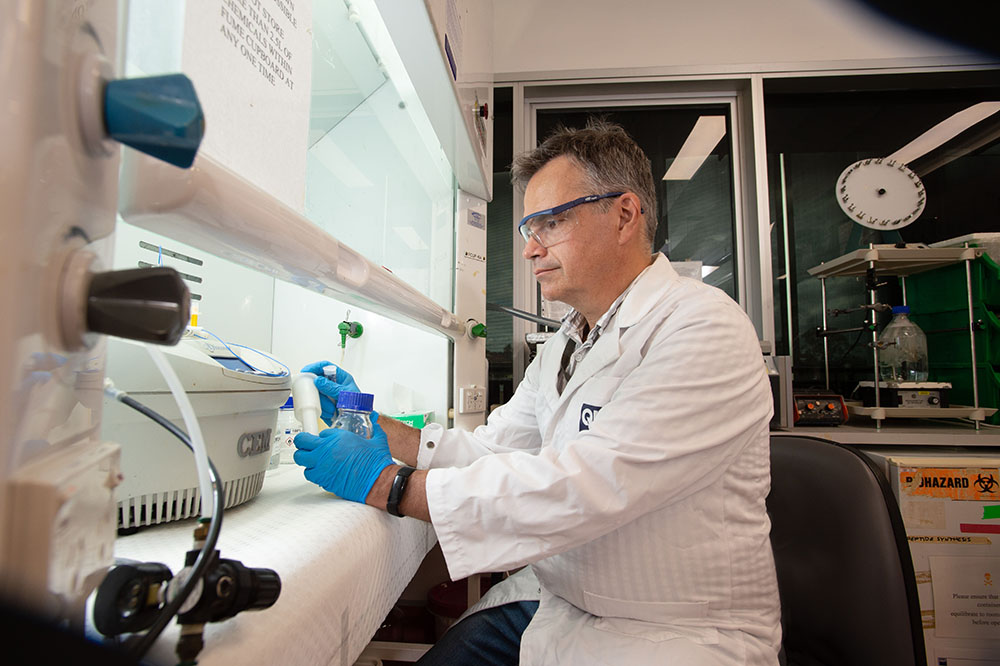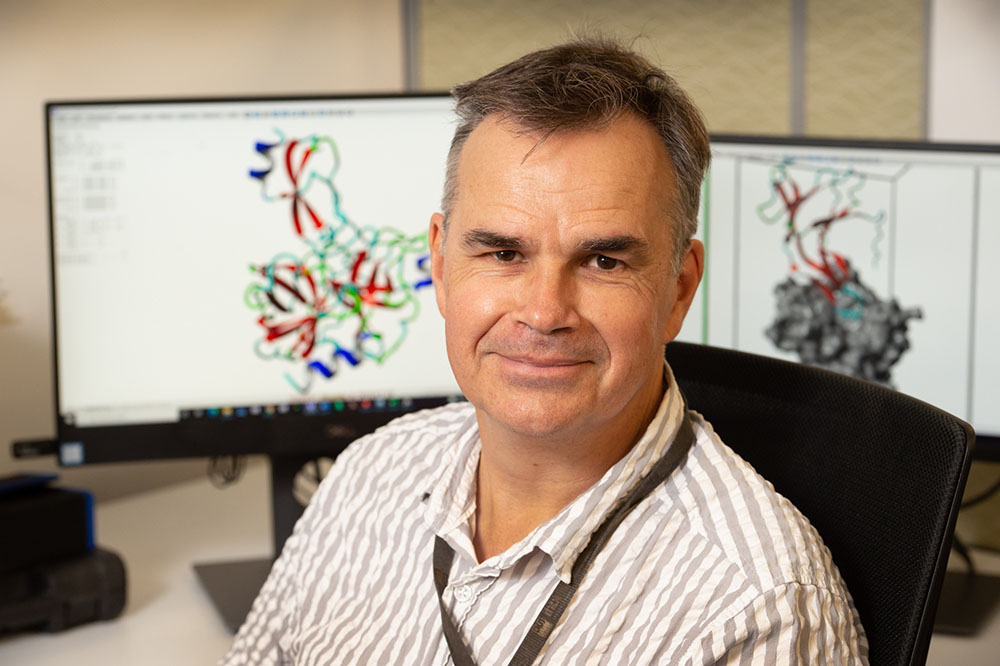QUT researchers have signed an agreement with US pharmaceutical company Quoin to fund a pre-clinical program at QUT to further research a potential treatment for a rare skin condition called Netherton Syndrome.
- Research will focus on Netherton Syndrome (NS), an hereditary autoimmune condition
- NS is characterised by skin inflammation, itchiness, dry skin and growth retardation
- This disease sequence is the same for the ‘atopic triad’ – research will seek treatments potentially applicable to both conditions

Professor Jonathan Harris from the QUT School of Biomedical Sciences will lead the research on a bi-functional protein that has shown promising in-vitro results as a treatment for this chronic skin condition, which, in extreme cases can be fatal.
“Netherton Syndrome is a rare, hereditary, autoimmune condition that is characterised by chronic skin inflammation, itchiness, extreme skin dryness and growth retardation,” Professor Harris said.
“People with this syndrome also have a predisposition to asthma and allergic rhinitis
“Netherton syndrome has the same disease sequence as the ‘atopic (allergic) triad’ of atopic dermatitis (eczema), rhinitis and asthma and so Netherton disease offers a highly defined model of this triad which is amenable to laboratory investigation.
“As there is a growing consensus that atopic dermatitis is a causal factor and initiator of the ‘atopic triad’ and its co-morbidities of diabetes and fatty liver disease, there is a pressing need to understand the factors underlying these conditions.”

Professor Harris said Netherton syndrome resulted from a mutation of the gene that leads to the absence of LEKTI, a key inhibitor of the breaking down of the skin’s proteins.
“This mutation leads to severe thinning of the top layer of the skin weakening its structure and starting a vicious cycle of inflammation, skin barrier failure and further inflammation,” he said.
“Our research aims to identify inhibitors to selectively both block the breakdown of the skin barrier and test them for the ability to repair barrier failure.
“These studies will enable us to describe the role the process of protein breakdown plays in Netherton syndrome and atopic dermatitis and provide the foundation for a novel class of therapeutic compounds with the potential to halt the development of the allergic sequence.
“It is a novel approach because we aim to address the root cause of sensitization and skin barrier failure rather than the symptoms which are currently treated with anti-inflammatory steroids and immunomodulators, both of which have serious side effects and do not provide a long-term cure.”
Professor Harris carried out the foundational investigation with Dr Xingchen Chen from the Centre for Excellence in Molecular Cell Science, Chinese Academy of Sciences, Shanghai, China.








